Vocabulary enhancement Reading Non-Fiction Worksheets for Ages 6-7
12 filtered results
-
From - To
Enhance your child's vocabulary with our engaging non-fiction reading worksheets specifically designed for ages 6-7! These vocabulary enrichment activities help young learners explore various subjects while improving their language skills. Each worksheet is tailored to introduce new words in context, boosting comprehension and retention. Fun illustrations and age-appropriate topics captivate children’s interest, making learning exciting. Perfect for at-home learning or classroom use, our worksheets promote critical thinking and focus on language development. Help your child become a confident reader and communicator with our accessible and interactive non-fiction resources today! Explore our collection and watch their vocabulary flourish!
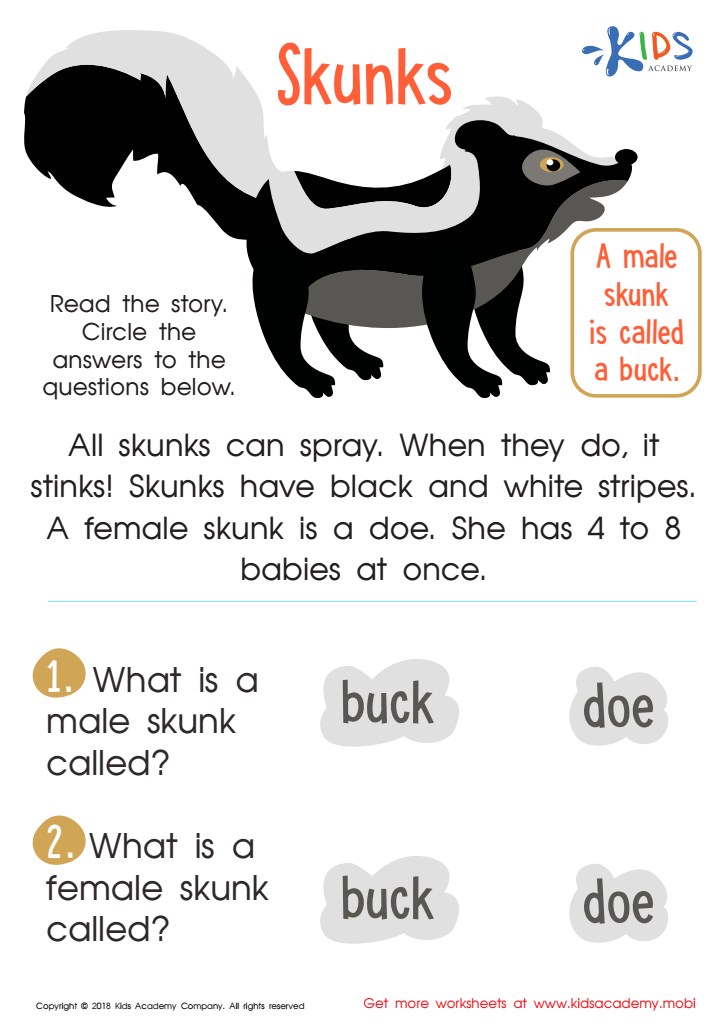

Skunks Worksheet
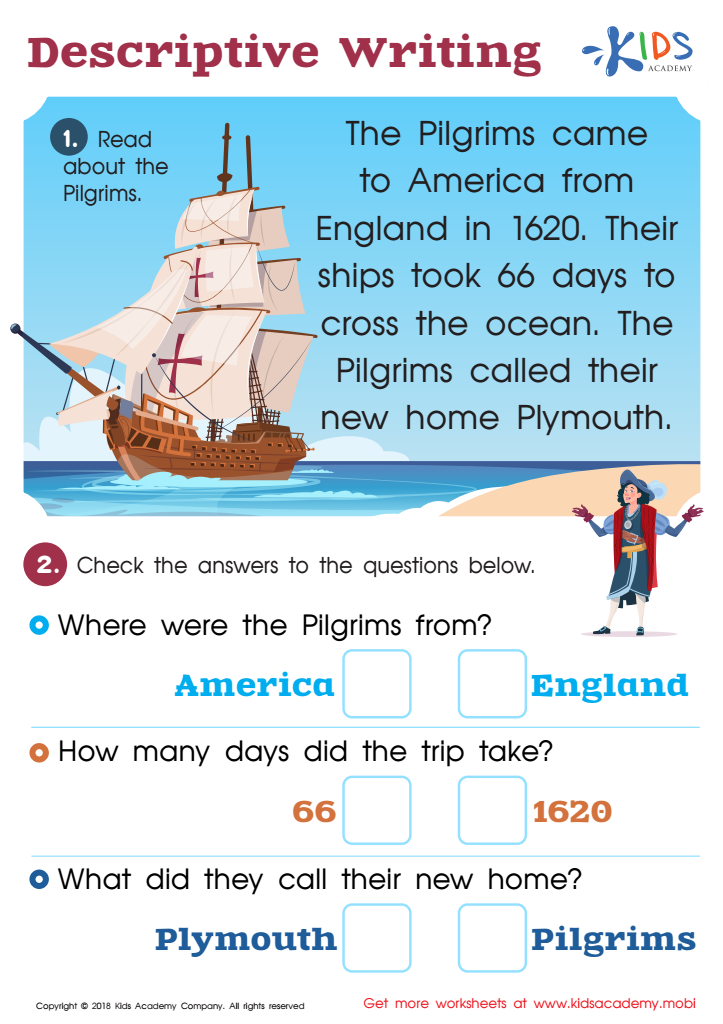

Descriptive Writing Worksheet: Part 1
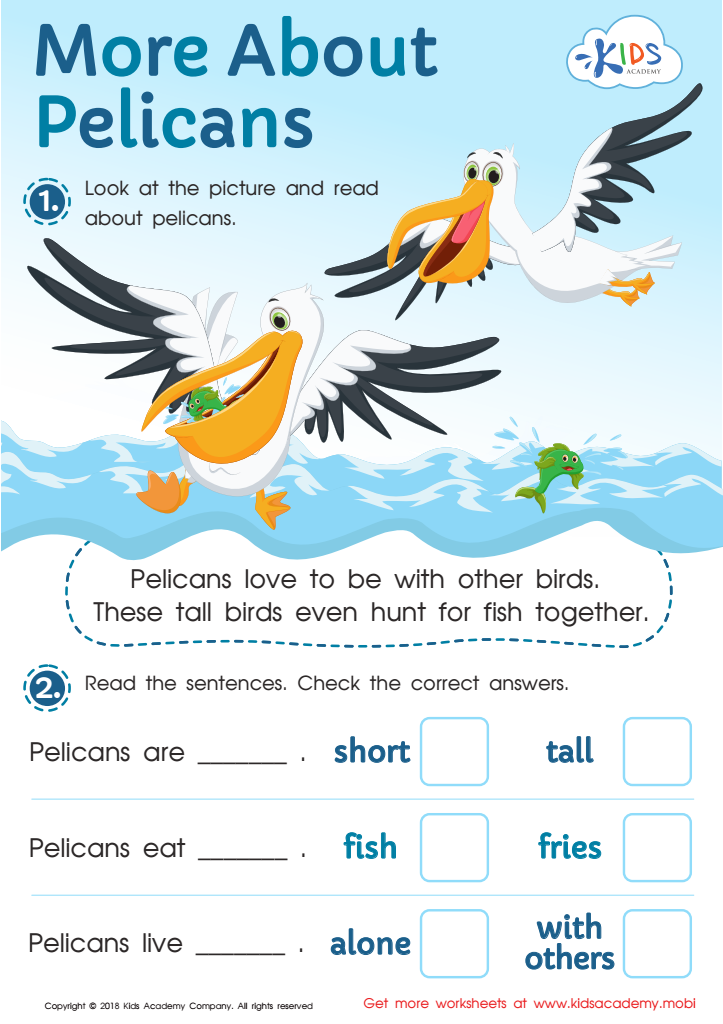

More About Pelicans Worksheet
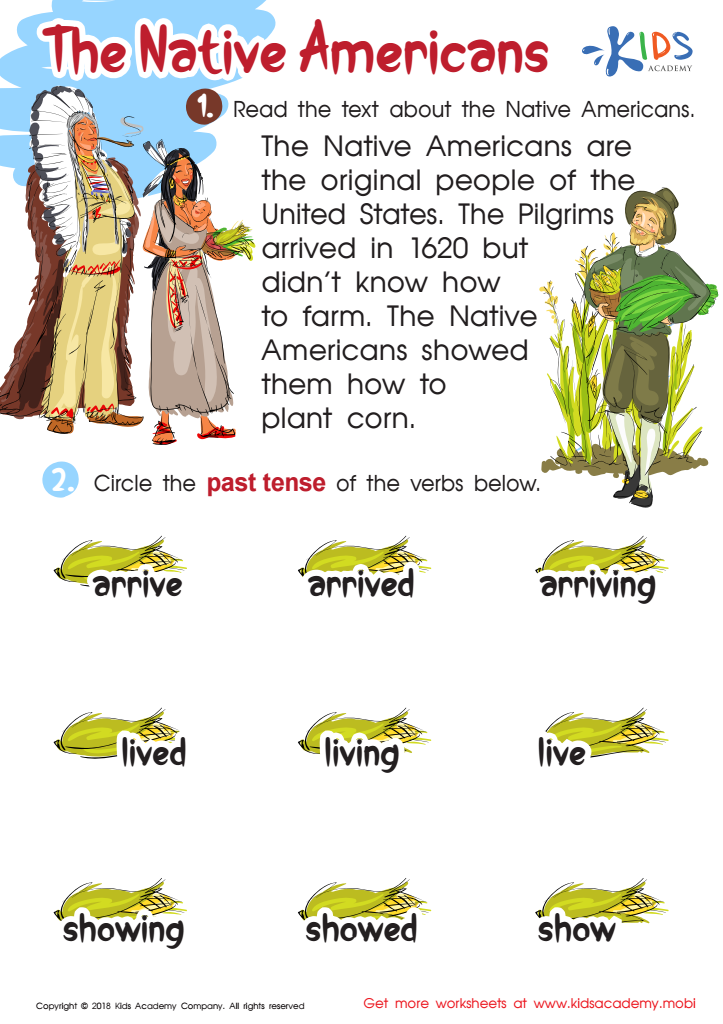

The Native Americans Worksheet
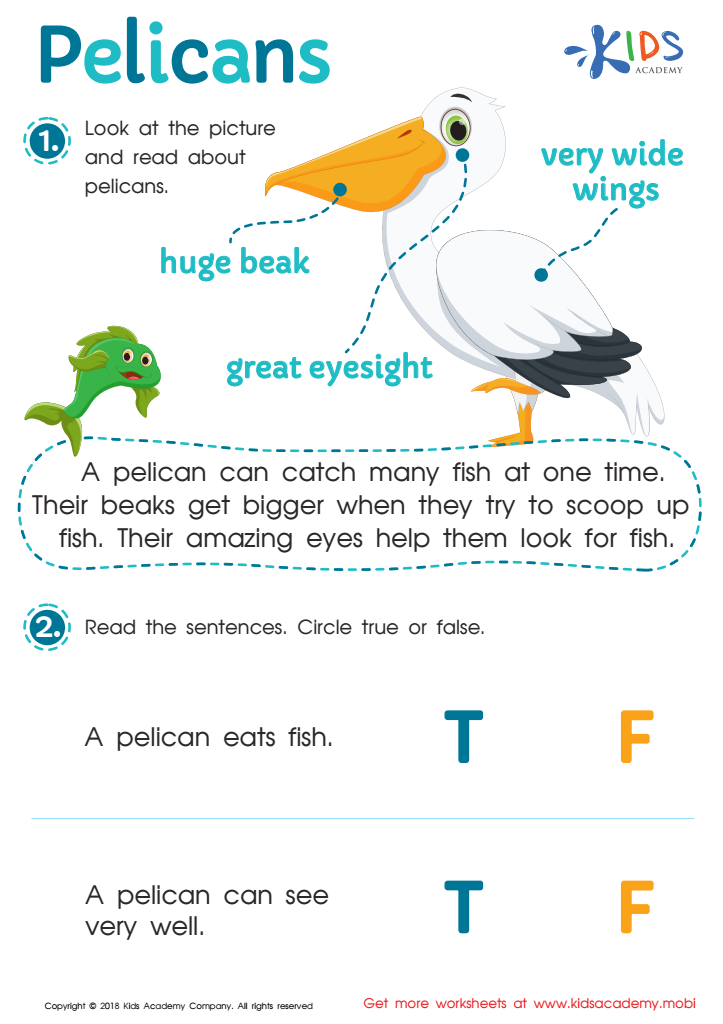

Pelicans Worksheet
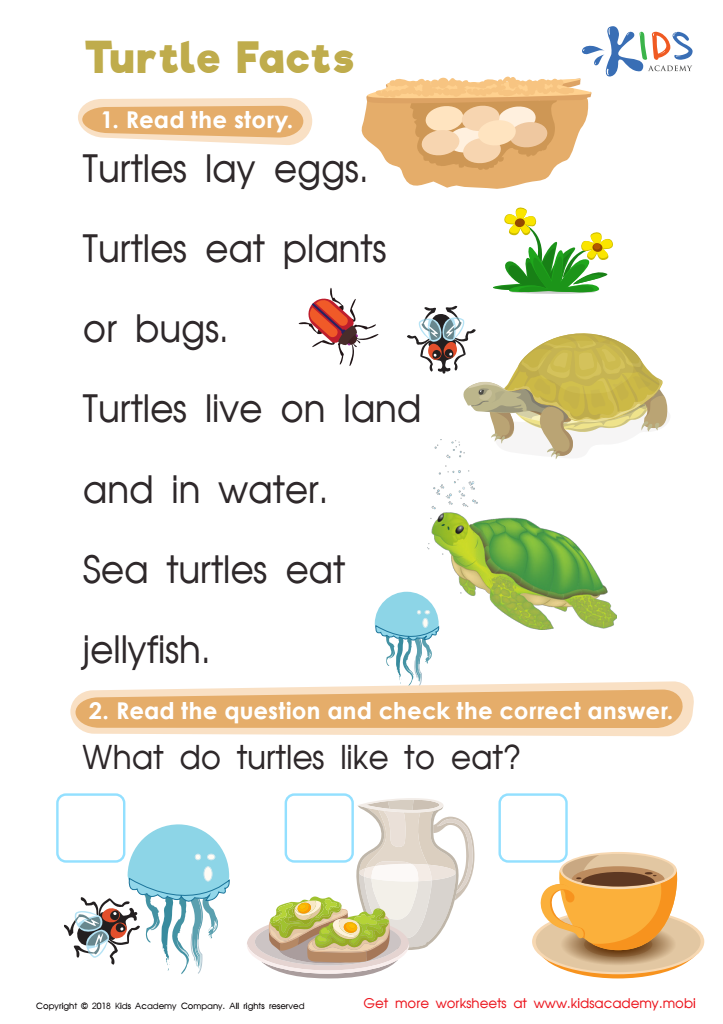

Turtle Facts Worksheet
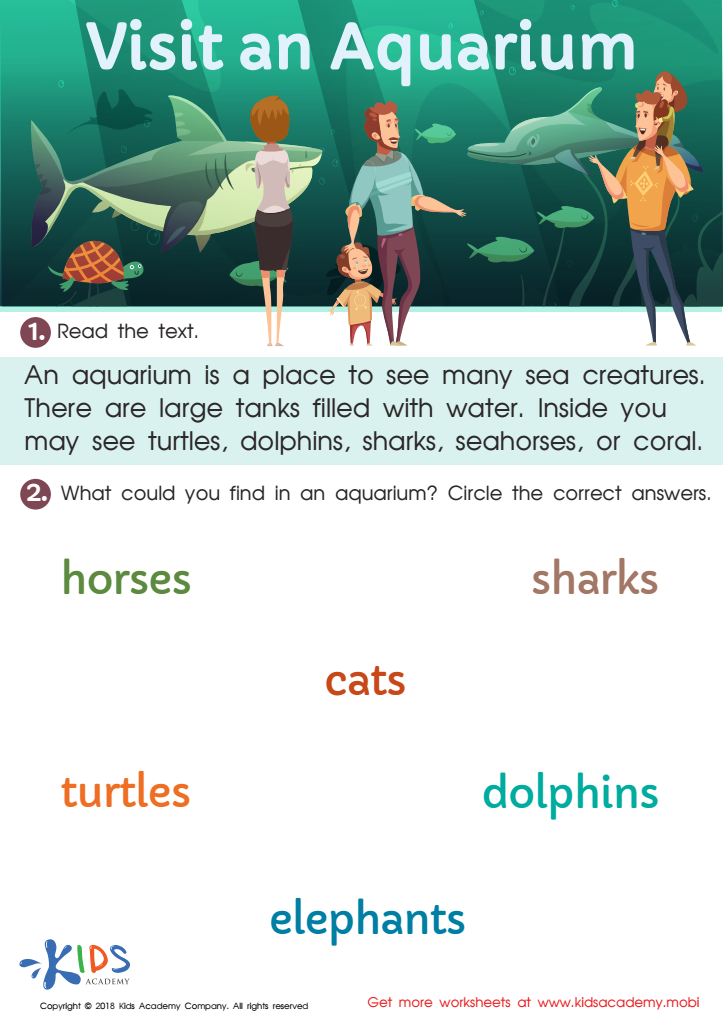

Visit an Aquarium Worksheet
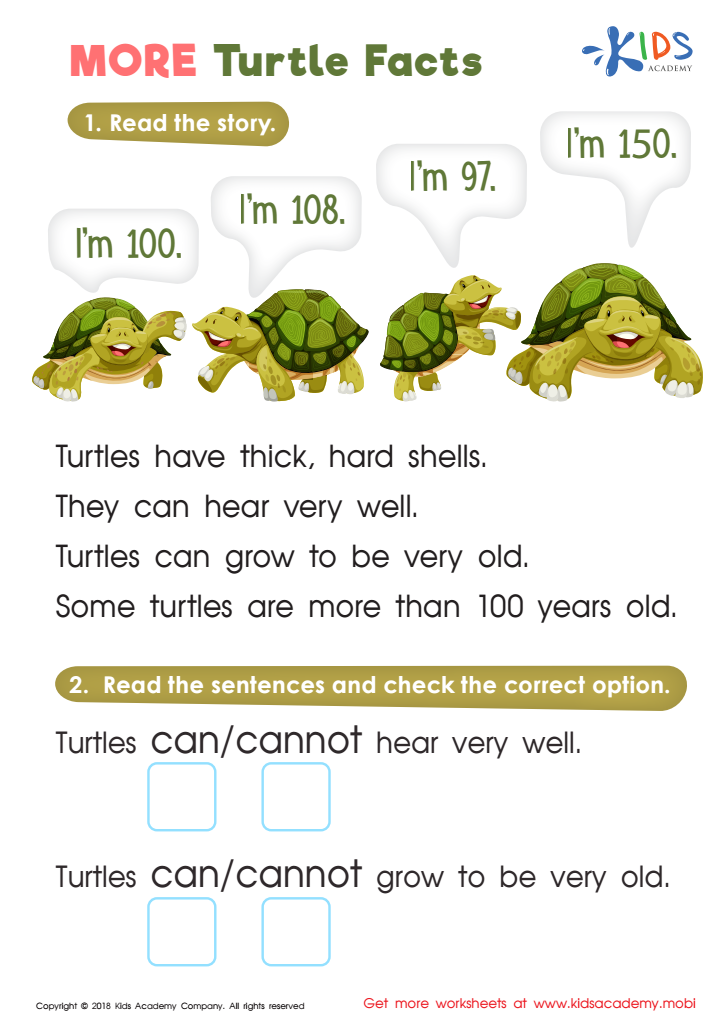

More Turtle Facts Worksheet
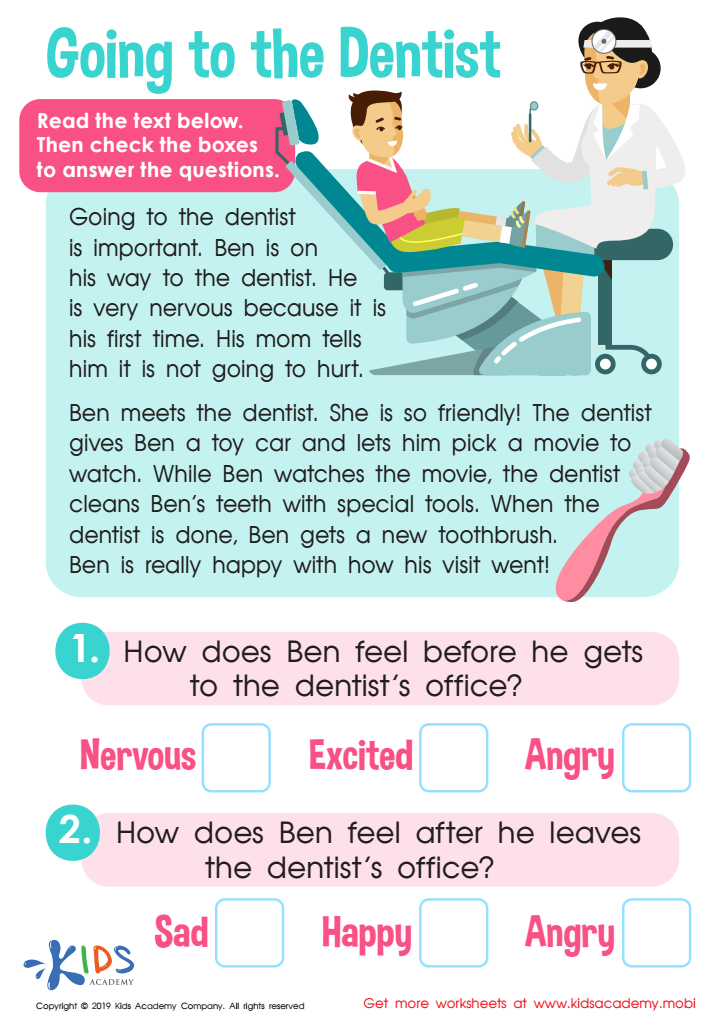

Going to the Dentist Worksheet
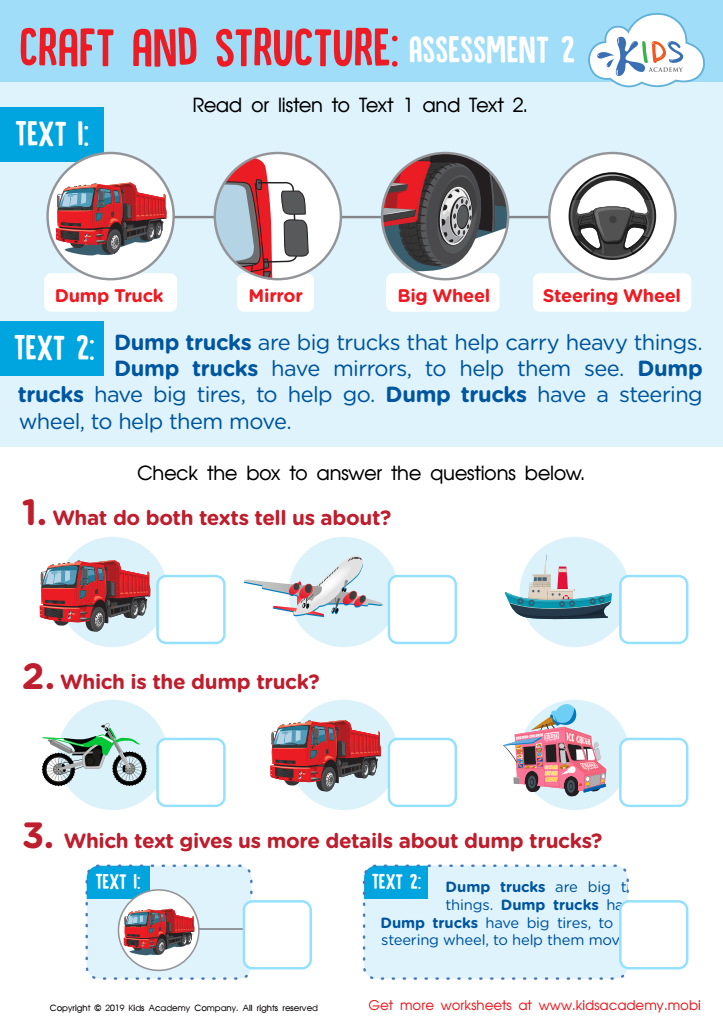

Craft and Structure: Assessment 2 Worksheet
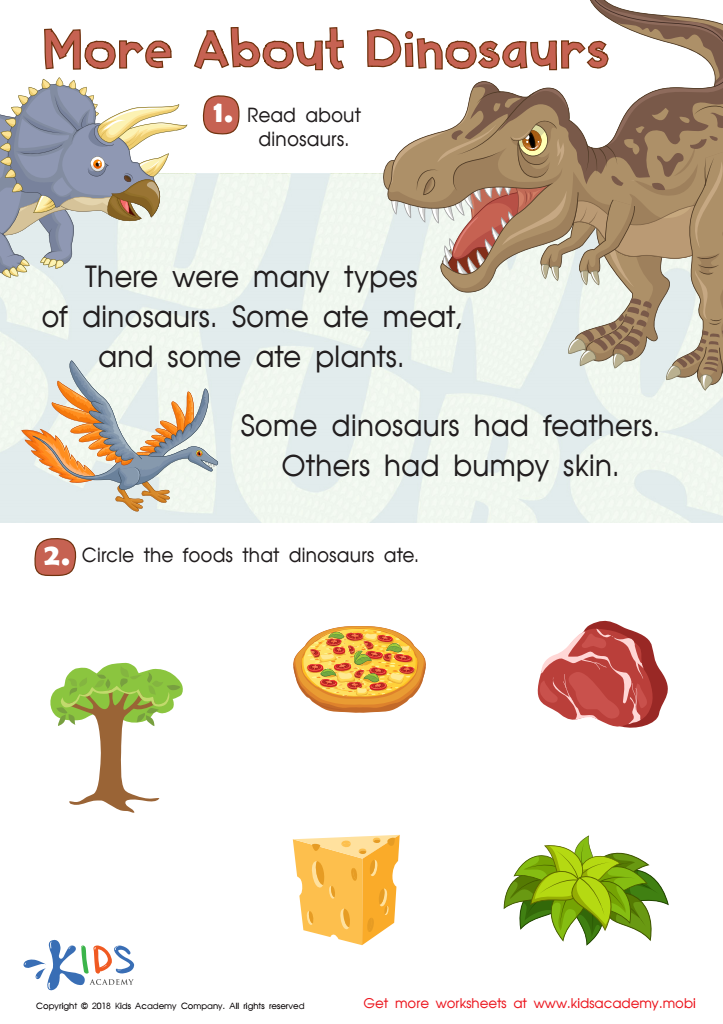

More About Dinosaurs Worksheet
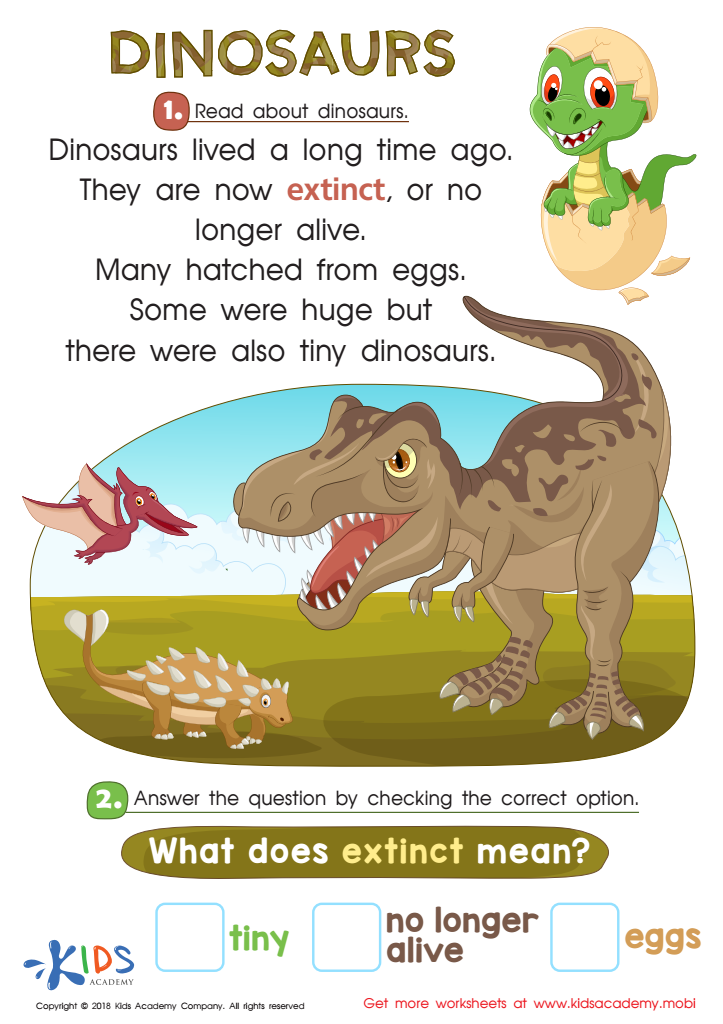

Dinosaurs Worksheet
Vocabulary enhancement through reading non-fiction is crucial for children aged 6-7, as it lays a foundation for strong literacy skills and knowledge acquisition. At this developmental stage, children's brains are highly receptive to language, making it an optimal time to expand their vocabulary. Non-fiction texts introduce new words contextualized within real-world topics, enhancing comprehension and fostering a love for learning.
Exposure to various subjects such as animals, science, or history through non-fiction not only broadens vocabulary but also piques curiosity and encourages critical thinking. Engaging with diverse information teaches children to make connections between words and concepts, promoting deeper understanding.
Moreover, a rich vocabulary is linked to academic success; children with strong word knowledge perform better in reading comprehension, writing, and oral communication. For parents and teachers, cultivating a robust vocabulary through non-fiction helps children articulate their thoughts and ideas more clearly, boosting their confidence in expressing themselves.
Ultimately, investing time in vocabulary enhancement through non-fiction reading builds fundamental skills that empower children to navigate and engage with the world around them, fostering lifelong learning and curiosity. Therefore, it is essential for parents and teachers to prioritize this approach in their educational practices.

 Assign to My Students
Assign to My Students





















